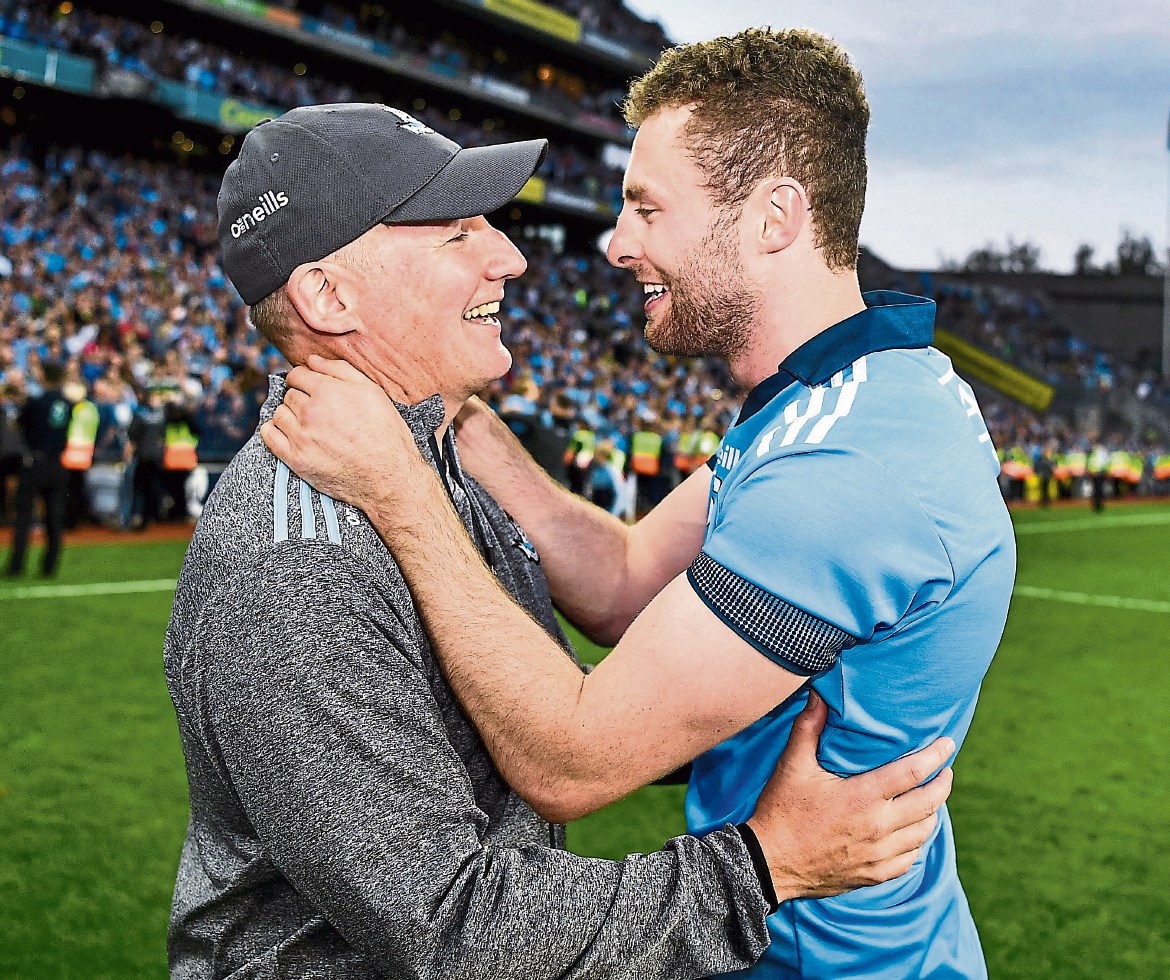WE’VE all been there. Your team is in a game they’re expected to win, or at the very least put up a decent battle and they collapse. It’s awful as a supporter, horrific for management who can do nothing but stand on the line and watch the demise and it’s one of the longest hours of a player’s life. There’s nothing that can be done. Or is there?
These are the kind of questions that researchers in sport psychology attempt to answer, or at the very least try to understand why they happen. By understanding, we can mitigate against it. It’s very common that some players will disappear from a game for a period of time.
The collective collapse is harder to recover from. When I am asked to work with a team, a ‘collapse’ is often a reason cited for the call, or upon speaking to players or management I find that a ‘collapse’ from the season before or even a few years previously has left a scar. Often, that dark day has never been discussed within the setup, yet everyone has their own individual theories as to why it happened.
The first step has to be knowing why. You cannot prevent a similar event in future unless you are willing to drill into the why, and accept your own part in the collective collapse. People can be afraid to do this. It’s hard to look in the mirror sometimes. It must be done safely, ideally with a sport psychologist. It’s the only way a team can assess everyone’s reaction from the management to the last sub on the bench to a pivotal event and learn strategies to counteract it the next time it reappears. Because unless it is put to bed, it will re-emerge.
I found a piece of research done on handball players from 2009. It found no ‘big’ event precipitated the collapse. A combination of inappropriate behaviour, negative communication, the inability to cope with unexpected tactics from the opposition was cited. These events that started off a cascade of negative emotions within the players, including negative thinking and negative emotional contagion. It wasn’t spotted in real time, and it all combined to create an overall team performance.
This is often the way. Very rarely does one turning point change the fate of a match overall. We may point to a spectacular, morale-sucking goal, but if a team is in the right place mentally, that goal shouldn’t inflict the psychological damage it does. The same researcher who looked at handball players decided to assess management as well in 2009. He studied coaches in handball, ice hockey and soccer and explored their perceptions on team collapses.
Sure enough, they also cited a combination of inappropriate behaviour, negative communication and unexpected tactics from the opposition! What does this tell us? Very simply, it means we haven’t trained our players or ourselves to cope with the mental demands of sport as much as we think we have. It means too many of us are placing our fate into the hands of external factors and perhaps we’re happier by blaming things like refereeing decisions, momentum swings, poor behaviour from the opposition rather than admitting our own heads just weren’t in the right place.
The grading of teams in Gaelic games means that, generally, there shouldn’t be much difference between the physical ability of teams. Yet, we all know the teams who we would describe as brittle, or unable to deal with the gauntlet of emotions and challenges that accompany big match days, or games that will go down to the wire.
Over the years, we’ve learnt of the teams who manage to stay present and in the game until the final whistle. Dublin, Tyrone, Corofin to name but a few. That is learnt behaviour. They didn’t lick it off a stone. Everyone feels pressure in different ways.
The key is recognising when a potential cascade of catastrophe is about to kick off, and turning the mind to deal with it. They all have their strategies. Slowing down the game. Mouthing into the opposition’s ear. Speaking to each other to refuel the confidence tank if they notice someone’s head about to drop. They do this to regain their psychological performance, as if that dips, so too will their physical.
An unfocused team is half a second behind their opposition, which increases the chances of that morale-sucking goal against you. So often, I’ve heard it described by players as if they were having a bad dream.
As if a few minutes floated beyond them and they felt powerless to intervene and get off the cloud and back into the reality of the game.
You need to find ways to reset your team’s focus as a protective factor. You also need to deal with any perceptions of increased pressure before a ball is even thrown in. If it’s an important game, don’t ignore the elephant in the room. Talk it out. Have strategies to deal with that pressure and accompanying anxiety.
Conversely, beware the player or coach who appears overconfident. That’s also a recipe for poor preparation and reduced concentration, which allows a way in for your opposition and before you know it, you’re stunned by this ‘unpredicted’ turn of events, when in reality anyone could have seen it coming.
This is why Dublin never disrespected the teams in lower divisions. Anyone has the ability to inflict a killer blow if you leave enough of yourself exposed. Ultimately, the collapse may be visible on game day, but it happened due to the lack of mental preparation leading up to it.
Receive quality journalism wherever you are, on any device. Keep up to date from the comfort of your own home with a digital subscription.
Any time | Any place | Anywhere












